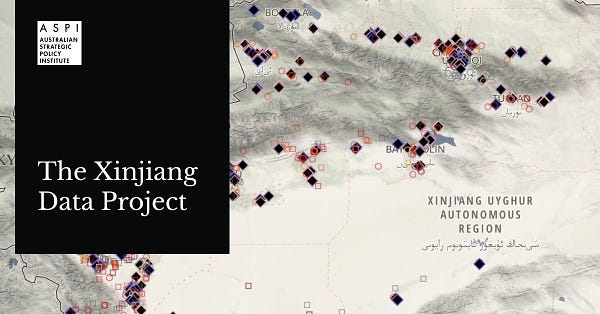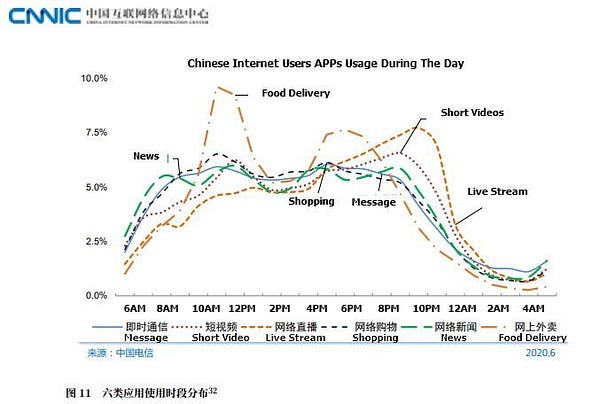Dutton says cyber attacks on critical infrastructure rising | Chinese seek curbs on Nvidia's Arm Deal | Google AI tech to be used for virtual border wall


Follow us on Twitter. The Daily Cyber Digest focuses on the topics we work on, including cyber, critical technologies & strategic issues like foreign interference.
The Australian government is looking to impose new obligations on owners and operators of critical infrastructure to provide details about their networks. The Home Affairs Minister will be able to declare an emergency to give agencies such as the Australian Signals Directorate the power to plug into the networks of critical infrastructure to fend off major attacks. The Sydney Morning Herald
Chinese technology companies including Huawei Technologies Co. have expressed strong concerns to local regulators about Nvidia Corp.’s proposed acquisition of Arm Ltd., people familiar with the matter said, potentially jeopardizing the $40 billion semiconductor deal. Bloomberg
In August, Customs and Border Protection accepted a proposal to use Google Cloud technology to facilitate the use of artificial intelligence deployed by the CBP Innovation Team, known as INVNT. Among other projects, INVNT is working on technologies for a new “virtual” wall along the southern border that combines surveillance towers and drones, blanketing an area with sensors to detect unauthorized entry into the country. The Intercept
ASPI ICPC
The UK defence strategy: 'Integrated operating concept'
Second Line of Defense
In a speech on the Integrated Operating Concept, the UK Chief of Defence Staff provided some details: The COVID crisis has highlighted how the use of propaganda, data misuse, disinformation, and strategic influence is presenting complex and rapidly evolving challenges for researchers, civil society, and of course for policymakers. And our autocratic rivals have utilised these techniques most effectively. The Australian Strategic Policy Institute is tracking how a range of actors are manipulating the information environment to exploit the COVID-19 crisis for strategic gain – including pro-Russian vaccine politics whose disinformation narratives are designed to permeate anti-vaccination social media groups.
Loyalty tests make Australia weaker, not stronger
The Lowy Institute
@natashaskassam @limdarrenj
Through its united front work, the Chinese Communist Party attempts to reduce the array of diverse Chinese communities into an imagined singular whole that is both patriotic and unified under the leadership of the Party. Anyone of Chinese ethnicity is expected to be loyal and not betray the so-called motherland above all else. As Alex Joske at the Australian Strategic Policy Institute explains, “successful united front work wedges the party between ethnic Chinese communities and the societies they live in”. Asking Australians to “pick a side” is driving that wedge.


World
Huawei, China firms said to seek curbs on Nvidia's Arm Deal
Bloomberg
Chinese technology companies including Huawei Technologies Co. have expressed strong concerns to local regulators about Nvidia Corp.’s proposed acquisition of Arm Ltd., people familiar with the matter said, potentially jeopardizing the $40 billion semiconductor deal.


Australia
'Consequences catastrophic': Dutton says cyber attacks on critical infrastructure rising
The Sydney Morning Herald
@Gallo_ways
The government is looking to impose new obligations on owners and operators of critical infrastructure to provide details about their networks. The Home Affairs Minister will be able to declare an emergency to give agencies such as the Australian Signals Directorate the power to plug into the networks of critical infrastructure to fend off major attacks.
Australian government to review domestic payments system regulation
ZDNet
According to Treasurer Josh Frydenberg, the review will look at whether the existing regulatory architecture of the payments system is suitable given rapid changes in technology, how to drive increased productivity through innovation and competition, assess government payment systems, and analyse global trends to determine how Australia can remain internationally competitive.
ACCC on digital platforms: It's not a case of Schumpeterian creative destruction
ZDNet
Australian Competition and Consumer Commission (ACCC) chair Rod Sims on Wednesday touched on the battle the watchdog is currently facing with Google and Facebook on the platforms' "considerable" market power, saying it isn't simply a case of creative destruction.
Tech adoption not creation: the PM’s digital plan
InnovationAus
The federal government’s digital economy push is about tech adoption not tech creation, according to Prime Minister Scott Morrison.
China
USA
Google AI tech will be used for virtual border wall, CBP contract shows
The Intercept
In August, Customs and Border Protection accepted a proposal to use Google Cloud technology to facilitate the use of artificial intelligence deployed by the CBP Innovation Team, known as INVNT. Among other projects, INVNT is working on technologies for a new “virtual” wall along the southern border that combines surveillance towers and drones, blanketing an area with sensors to detect unauthorized entry into the country.
How US security officials are watching for threats ahead of Election Day
CyberScoop
U.S. intelligence, law enforcement and national security agencies have for weeks been in an “enhanced operational posture” to share any election-related threats with state and local officials, said Chris Krebs, director of the Department of Homeland Security’s Cybersecurity and Infrastructure Security Agency. The week before Election Day, which is Nov. 3, those security efforts will kick into overdrive.

Facial-Recognition Startup Clearview Moves to Limit Risk of Police Abuse
The Wall Street Journal
Speaking at The Wall Street Journal’s Tech Live virtual conference, Mr. Ton-That said Clearview would make available training and compliance features that help ensure police officers use the technology ethically to solve crimes, though it would be up to police department heads to monitor officers and enforce the rules. One new feature he described is a requirement that police enter a specific case number and crime for each search, to enable better auditing.
Why A Gamer Started A Web Of Disinformation Sites Aimed At Latino Americans
FiveThirtyEight
Sean Reynolds, a YouTuber, gamer and entrepreneur, was the owner and operator of three websites and affiliated Facebook pages that peddled in misinformation, predominantly in Spanish. The existence of the network was first reported by Politico last week,1 but an exclusive interview with Reynolds revealed why he started the sites.
Responding to Modern Cyber Threats with Diplomacy and Deterrence
US Department of State
For my own part, I’d like to say a few words today about what we’re currently doing in the U.S. Government in the field of cyberspace security diplomacy. At a time when lurid, real-time headlines and the swirl of an oncoming U.S. presidential election understandably offer innumerable opportunities for distraction, I think it’s vital not to lose sight of the fact that important ongoing policy initiatives continue to advance — and that there is actually a great deal of really valuable continuity and evolutionary progress in U.S. cyber diplomacy.
Proud Boys' Emails Threatening Florida Voters Appear to Use Spoofed Email Address
Vice
The emails, which read 'Vote for Trump or else!' have been delivered to Democratic voters using Estonian internet infrastructure.
Facebook Manipulated the News You See to Appease Republicans, Insiders Say
Mother Jones
Sources tell us the platform tweaked its code to help right-wing publishers and throttle sites like Mother Jones.
North-East Asia
China Backs Off From Fight With K-Pop Fans
Foreign Policy
China’s media offensive against the kings of K-pop barely lasted two days. Global Times quietly deleted some of its articles criticizing BTS, and the negativity against the group in Chinese social media also faded quickly. Some Chinese fans’ call for a boycott barely made a dent on BTS, supported by their worldwide fan club “ARMY” (which stands for Adorable Representative M.C. for Youth, if you were wondering).


Japan will take steps to guard against Olympics cyber attacks
ITnews
Japan will take countermeasures to ensure next year's Tokyo Olympics are not derailed by cyber attacks after Britain and the United States accused Russia of orchestrating efforts to disrupt the Games.
New Zealand & The Pacific
Can mobile technology address the information challenges of the Pacific?
Policy Forum
The use of mobile technologies in the 2019 Bougainville referendum presents both opportunities and challenges for the future of democracy in the Pacific
Europe
China Warns Swedish Companies Could Suffer From Huawei Ban
Bloomberg
The Chinese foreign ministry warned Sweden that it should revoke its ban on Huawei Technologies Co. to avoid hurting prospects for Swedish companies. The announcement comes a day after Swedish authorities blocked operators from using Chinese vendors Huawei and ZTE Corp. as part of the country’s 5G roll-out.
Europe's digital decade?
Clingendael
Aiming to contribute to improved European policy-making, this report discusses (best) practices of Asian countries and the United States in the field of digital connectivity. It covers a wide range of topics related to digital regulation, the e-economy, and telecommunications infrastructure.
The Americas


Events
ASPI Webinar: Australia’s Cyber Security Strategy In-Focus
Speakers: Abigail Bradshaw, Marc Ablong and Fergus Hanson
The Covid-19 pandemic has emphasised the importance of the online world; it is now critically important in managing this pandemic. Yet at the same time, the risks and threats are increasing—in June the Prime Minister warned us that Australia was being targeted by a sophisticated state actor. In this webinar, hear from Abigail Bradshaw CSC, head of the Australian Cyber Security Centre, and Marc Ablong PSM, head of National Resilience and Cyber Security group at Home Affairs, in a discussion moderated by Fergus Hanson, Director of ASPI's International Cyber Policy Centre, about Australia’s Cyber Security Strategy 2020 and how it will be operationalised.
Date & Time: 22 October 2020, 3:00 pm - 4:00 pm (AEST).
Register here.
2020 Cybersecurity Conference
European Chamber
In order to examine how the Cybersecurity Law and the Data Security Draft Law will coexist, and what the long-term impact will be on European companies operating in China, the European Chamber as assembled a distinguished group of government representatives, lawyers, security experts and industry representatives to discuss this topic at its annual Cybersecurity Conference.
Networking: Women speak cyber (brought to you by Palo Alto Networks)
Join this networking event to meet the power women diversifying the Australian cyber security sector. Drop-in for short 1:1 networking sessions, facilitated through the ‘Hopin’ platform, with a range of ‘cyber power women’. Date & Time: 30 October 12:00 pm (AEST)
Virtual Report Launch: Common Code: An Alliance Framework for Democratic Technology Policy
Center for New American Security
Please join the Center for a New American Security for the launch of the Technology and National Security Program's new report, "Common Code: An Alliance Framework for Democratic Technology Policy," on Wednesday, October 21, 2020 from 11:00 am to 12:30 pm ET/3:00 pm to 4:30 pm UST.
Research
Charting a transatlantic course to address China
Center for New American Security
Today’s controversies with China over trade, investment, technology, and global governance are all part of a larger competition between political systems and worldviews. The breadth of the challenge means that the United States and Europe must compete with China across multiple domains. This report lays out a roadmap for doing so, outlining concrete recommendations across the four sectors of technology, investment, trade, and global governance.
Common code: An alliance framework for democratic technology policy
Center for New American Security
Technological leadership by the world’s major liberal-democratic nations will be essential to safeguarding democratic institutions, norms, and values, and will contribute to global peace and prosperity. A unified approach by like-minded nations also is needed to counteract growing investments in and deployments of emerging technologies by authoritarian, revisionist powers.
The Russian Gambit and the US Intelligence Community: Russia's Use of Kompromat and Implausible Deniability to Optimize its 2016 Information Campaign against the US Presidential Election
Project Muse
In the leadup to the 2016 US presidential election, Russia engaged in covert political action to disrupt the American political system and undermine candidate Clinton. Following Trump's shock victory, Moscow swiftly pivoted to leverage its pre-election intervention in order to degrade the coherence of the US strategic decision-making.
Jobs
Senior Researcher / Project Lead
ASPI ICPC
ASPI’s International Cyber Policy Centre (ICPC) has an outstanding opportunity for a senior researcher to lead a one-year project looking at leadership networks across Asia. Interviews will start immediately.
Intern
ASPI
Are you a recent graduate wanting to develop your expertise in defence, national and cyber security and strategic policy? Do you want to inform the public and government on critical strategic choices facing Australia and learn what it takes to be a professional strategic analyst? If so, you might be interested in applying for the ASPI Research Internship Program.
Executive Level 1 - Assistant Director, Cyber Policy and Technology (Specialist)
DFAT
The Cyber Affairs and Critical Technology Branch (CYB) is responsible for implementing Australia’s International Cyber and Critical Technology Engagement Strategy (ICCTES) and Australia’s broader international cyber and critical technology agenda, led by Australia’s Ambassador for Cyber Affairs and Critical Technology. We are seeking enthusiastic and high calibre individuals to fill multiple positions in the Branch.
Research Assistant, Technology and International Affairs - Washington, District of Columbia, USA Job Opening
Carnegie Endowment for International Peace
The Partnership for Countering Influence Operations project, part of the Technology and International Affairs program at the Carnegie Endowment for International Peace is seeking to hire a Research Assistant.




